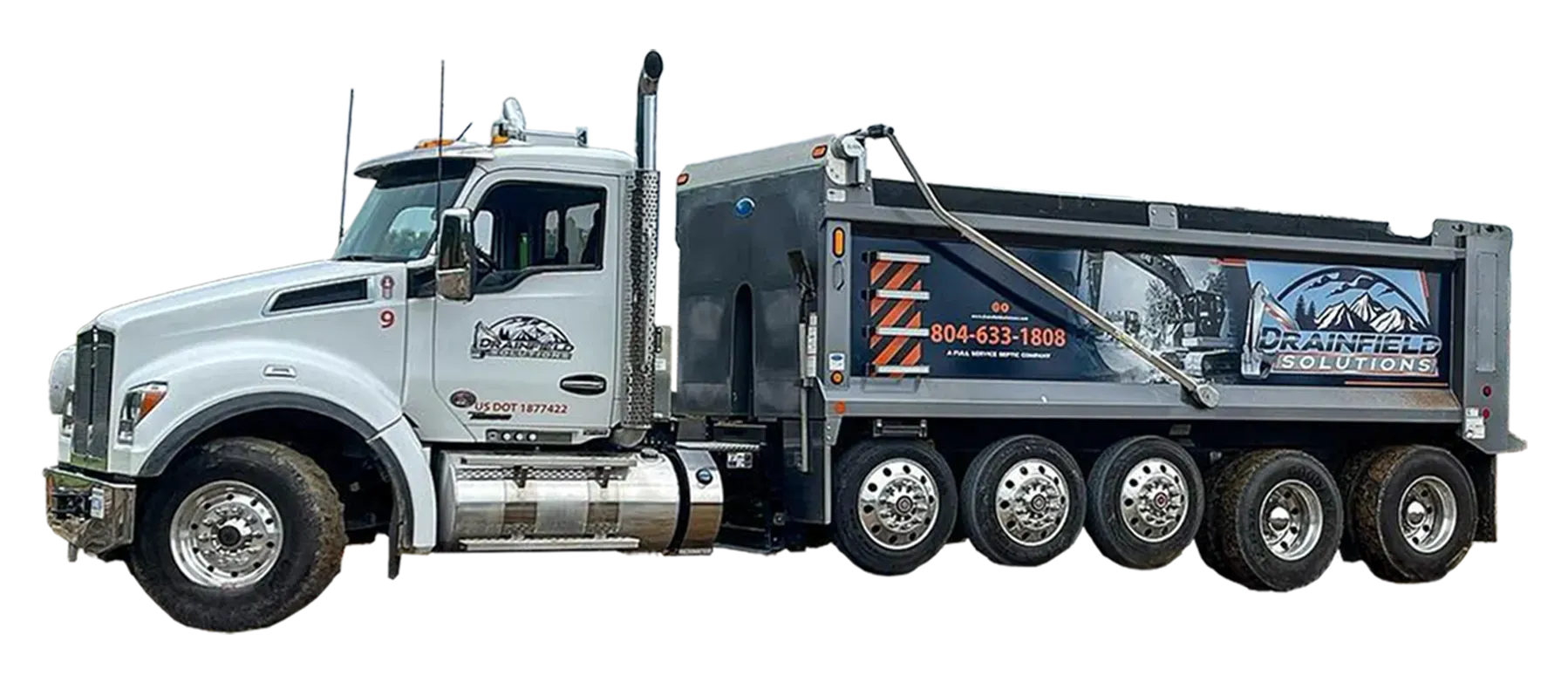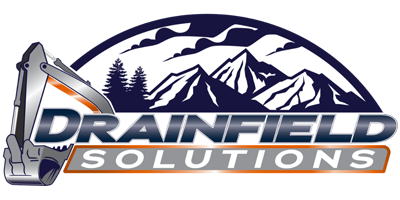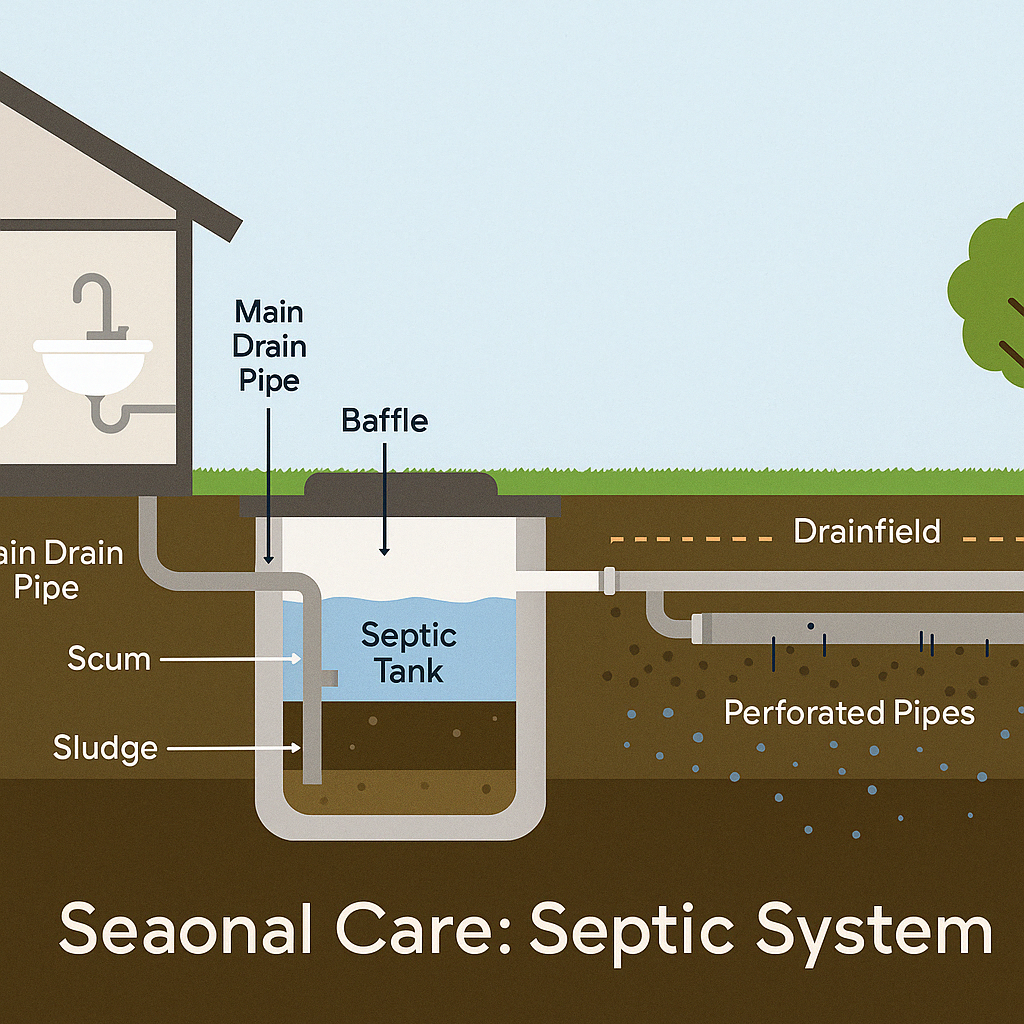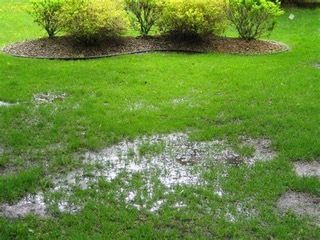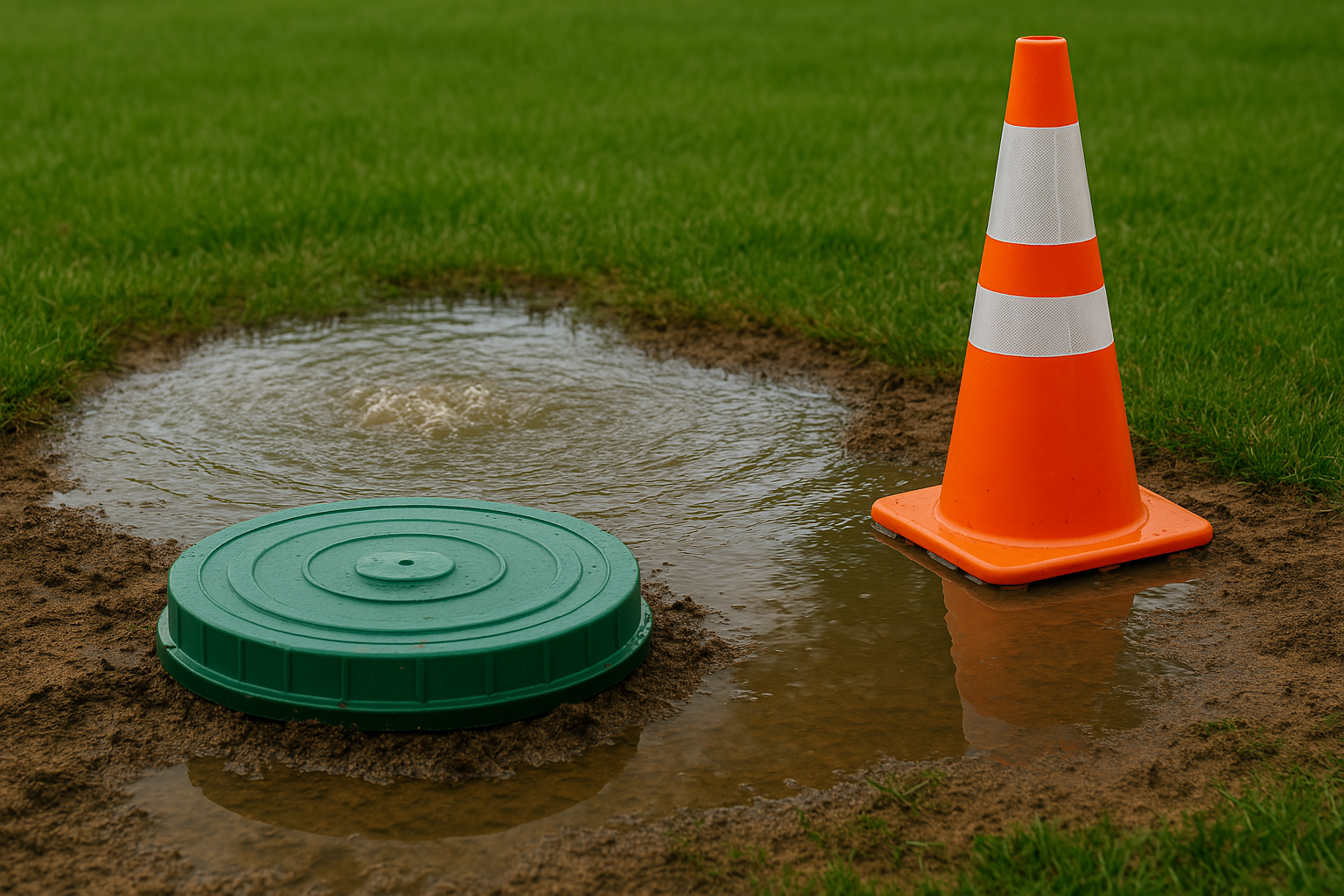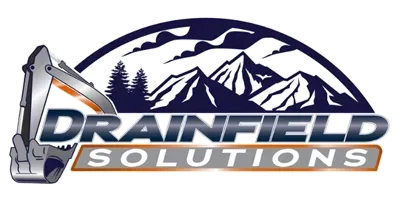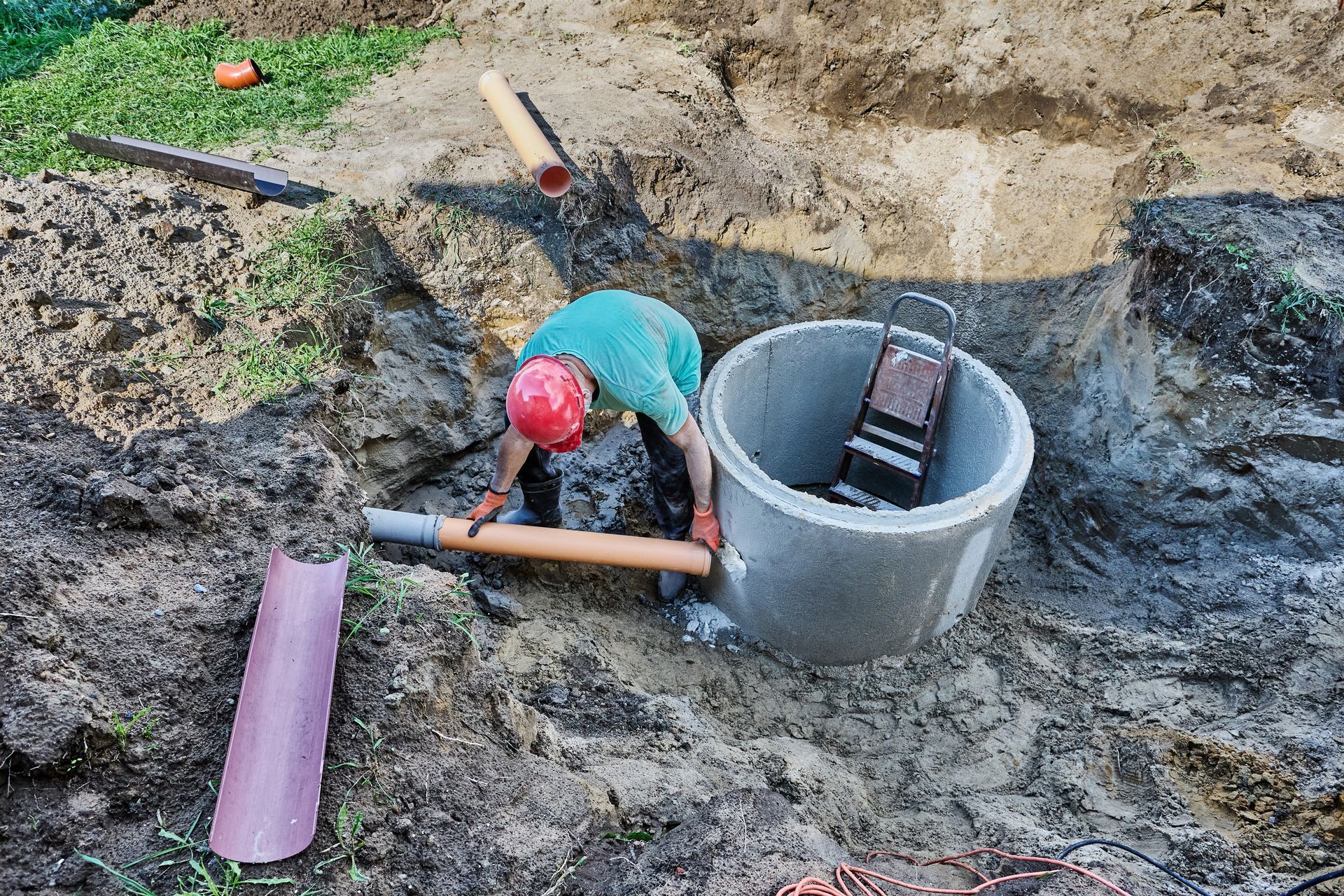
5 Steps in A Septic Inspection And How This Can Protect Your Real Estate Investment
February 13, 2025
When purchasing real estate , there are clear steps buyers take to ensure a property is worth their investment—home inspections, appraisals, and title searches, to name a few. Yet one critical point is often overlooked in properties with septic systems—a septic inspection.
If the home you’re eyeing relies on a septic tank and leach field, it’s crucial to understand the system's condition. A failed septic system can lead to expensive repairs, health risks, and environmental issues, all of which can erode your investment.
Fortunately, a thorough septic inspection conducted by experienced septic system installation contractors can save you from a world of potential trouble.
This blog will walk you through why a septic inspection matters, what’s involved in the process, and how it can protect your investment in real estate.
Why Septic Inspections are Necessary
Many properties rely on septic systems to manage wastewater. Unlike homes connected to municipal sewer systems, a septic tank and leach field work independently to treat and disperse wastewater on-site.
While septic systems are efficient and long-lasting when maintained properly, they are subject to wear and tear and are costly to repair if neglected. A simple system failure can lead to contaminated groundwater, foul odors, and even fines from local agencies that enforce environmental regulations.
A septic inspection ensures the system is functioning as intended, identifying any maintenance or repair needs before you purchase. Without this crucial step, you could unknowingly inherit a costly problem.
What Happens During a Septic Inspection?
For buyers unfamiliar with septic systems, an inspection may seem daunting. But fear not—experienced septic system installation contractors follow a systematic process to ensure no detail is missed. Here's what happens in a standard septic inspection:
1. Document Review
Inspectors begin by reviewing any available documentation about the system, including installation records, permits, and maintenance logs. This helps them understand the system’s age, type, and historical performance.
2. Visual Inspection
Inspectors examine key components of the system, including the septic tank, leach field, pipes, and connections. They’ll look for signs of external damage, such as cracked tank walls or patchy grass above the leach field, which could indicate a problem beneath the surface.
3. System Pumping (If Necessary)
To thoroughly inspect the septic tank, it may need to be pumped. This removes excess waste, allowing inspectors a clear view of the tank’s interior to check for cracks, leaks, or sludge buildup that could impede performance.
4. Water Flow and Dye Testing
Inspectors will often conduct water flow tests by running water through the system to simulate normal household use. They might also introduce a dye to the system to trace wastewater’s path and detect leaks or clogs.
5. Final Report
Once the inspection is complete, the contractor will provide a detailed report outlining their findings. This should highlight any issues, required repairs, system lifespan estimates, and recommendations for ongoing maintenance.
5 Ways Septic Inspections Protect Your Real Estate Investment
Septic inspections don’t just prevent future headaches; they actively safeguard one of your most significant financial investments. Here’s how.
1. Avoid Unexpected Costs
Repairs to a septic system can range from $3,000 to over $30,000, depending on the extent of damage. An inspection ensures you aren’t caught off guard by repairs that weren’t factored into your budget or purchase price.
If the inspection reveals problems, buyers can request fixes from the seller or negotiate the price based on estimated drainfield repair costs.
2. Ensure Regulatory Compliance
Many local health departments have strict regulations for septic systems to prevent health and environmental hazards. Non-compliance could mean costly penalties for you, the new homeowner.
A pre-purchase septic inspection ensures the system is up to code, giving you peace of mind and eliminating the risk of fines or legal issues.
3. Plan for Maintenance
Even if the system passes inspection, the detailed report can highlight areas for future maintenance. Knowing the system's condition allows you to plan proactive measures, extend its lifespan, and prevent future failures.
4. Protect the Environment
A failing septic system can contaminate groundwater, affecting nearby wells, streams, and ecosystems. This not only poses health risks but also damages your reputation as a responsible property owner.
By identifying issues early, you can make repairs to protect the surrounding environment and community.
5. Maintain Property Value
Your home’s septic system directly impacts its market value. A well-functioning system is an asset, while a failing one could deter future buyers. Scheduling regular inspections and addressing any issues ensures your property retains its value.
How to Find the Right Contractor for Your Septic Inspection
The expertise of the inspector conducting your septic inspection matters. After all, you’re relying on them to uncover any potential issues. Follow these tips to find the best septic system installation contractors for the job.
Seek Local Expertise
Local contractors are familiar with area-specific regulations, soil conditions, and common system types. Choose a contractor with experience in your region.
Check Credentials
Ensure the contractor is licensed and certified to perform septic inspections.
Look for Customer Reviews
Recommendations from previous clients will give you insight into the contractor’s professionalism, thoroughness, and understanding of septic tank and leach field installation.
Get a Comprehensive Service
A thorough inspection goes beyond just a visual check. Look for contractors who offer water flow testing, tank pumping, and detailed reporting in their inspection services.
Don’t Skip This Crucial Step
A pre-purchase septic inspection may not be as glamorous as picking out paint colors or imagining your furniture in a new living room—but it's far more important.
Protecting your investment starts with confirming the integrity of all the property’s systems, especially one as vital as a septic system.
When done by experienced septic system installation contractors, a septic inspection can save you thousands of dollars, ensure compliance, and keep your real estate investment solid.
Interested In a Septic System Inspection in Central Virginia?
Contact Drainfield Solutions for reliable septic solutions in Essex County, Richmond County, King & Queen County, King William County, Culpepper County and surrounding areas! Whether you're in a residential home or managing a commercial property, we do septic tank maintenance, septic repair, septic tank pumping and septic system replacement.
Share Post
Latest Posts
Ready to Take the Next Step?
Whether you're in need of a system inspection or regular maintenance, Drainfield Solutions is here to help. Get in touch today for reliable service you can trust.
